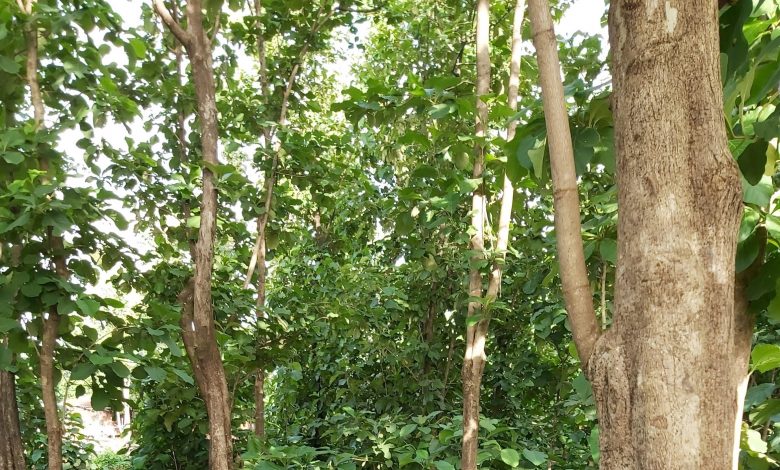Need For Effective Management Of Forest Areas To Check Terrorism And Other Crimes

Terrorist groups across Northern Nigeria are exploiting forest areas, including reserves designated as protected forest zones by the government for the conservation and management of national forest resources, to terrorise rural communities and travellers and also evade security forces.
Jamilu Usman, a geographer and environmental activist, said the forests presented good hideouts for criminal elements and terrorists.
In the Northwest, forest reserves are the main hideouts of kidnappers, bandits and other criminals.They go into communities to commit atrocities and hide in the forest reserves. In the Northeast, Sambisa Forest is notorious for being the hideout of Boko Haram insurgents.
Usman said, “Armed robbers find refuge in these forests, especially given the fact that many federal and state highways pass through them and the presence of police or military patrol is mostly inadequate, especially at night.”
Humangle previously reported about the activities of terrorist groups, kidnappers, and criminals in Kamuku and Kuyanbana forest range, where they exploit the relatively ungoverned space and the natural cover as a safe haven to launch raids, hide stolen cattle and kidnap victims.
The forest range borders Zamfara, Sokoto, Kano, Kebbi, Katsina, Kaduna and Niger and intertwines with smaller forest areas, such as Pandogari and Kagara forests in Niger State, Sunke, Dan Saudau and Sububu in Zamfara and the dreaded Birnin Gwari forest in Kaduna and Rugu and Dumburum forest in neighbouring Katsina State.
Governors of the seven states bordering the forest range have occasionally met in Kaduna to discuss and implement strategies to tackle cattle rustling and other criminal activities in the forest.
The violence perpetrated by armed groups in the Northwest has led to a humanitarian crisis with locals in affected communities forced to flee their homes. According to the United Nations High Commissioner for Refugees over 35,000 refugees were registered in Maradi region of Niger Republic at the end of February 2020 and another 210,000 people were internally displaced. The people were mostly Nigerians.
In the Northeast, Sambisa, Sassawa, Alargano, Benisheikh, Guljba, Lame Bura and Balmo Forests in Bauchi, Borno, and Yobe are part of active war zones where the military is battling terrorism by Boko Haram.
Forest reserves enable insurgents to apply guerrilla tactics, which is hard for the army to tackle, said Bassim Al – Husseini, Programme and Research Officer, Media and Terrorism Project at Premium Times Centre for Investigative Journalism.
Recognising the threat from forested areas, the Nigerian Army Department of Standard and Evaluation in April, 2019, organised a seminar on combating challenges associated with forest and protected areas.
Al-Husseini stated that the military needed to clear areas with insurgents and criminals before the Park Services Department “resumes operations in these areas.”
Forest guards are important for the security of forest areas, said Usman
“Back in the days, local governments employ forest guards to patrol these spaces and provide some sort of security. But nowadays, the forest guards are mostly only “a list on the payroll” and the forests see no movement of people. Bringing back these forest guards will help to tackle the problem to an extent,” he noted.
He said that creating tourism attraction areas, military, and police bases within these deep forests as seen in the case of Sambisa recently, would go a long way in protecting the forest reserves against the encroachment of criminal elements and make sure movement of people was enhanced within them so hiding within would become difficult.
At the centre of forest management and security are neglected communities residing in forest areas.
Al-Hussieni said the communities in these areas had forgotten about government presence, and so “the government needs to support the communities in all ways necessary.
“The communities need security, food, and adequate shelter, without that the government cannot utilise the cooperation of the communities.”
Effective management and protection of forest resources will prevent the use of these areas as safe havens by criminals and provide opportunities for local communities to generate income from improved forest management and conservation activities.
Geospatial information gathering and mapping of forest reserves using unmanned aerial vehicles and satellite imagery will provide the government with essential information on the interaction between local settlements and forest areas.
Support Our Journalism
There are millions of ordinary people affected by conflict in Africa whose stories are missing in the mainstream media. HumAngle is determined to tell those challenging and under-reported stories, hoping that the people impacted by these conflicts will find the safety and security they deserve.
To ensure that we continue to provide public service coverage, we have a small favour to ask you. We want you to be part of our journalistic endeavour by contributing a token to us.
Your donation will further promote a robust, free, and independent media.
Donate HereStay Closer To The Stories That Matter




